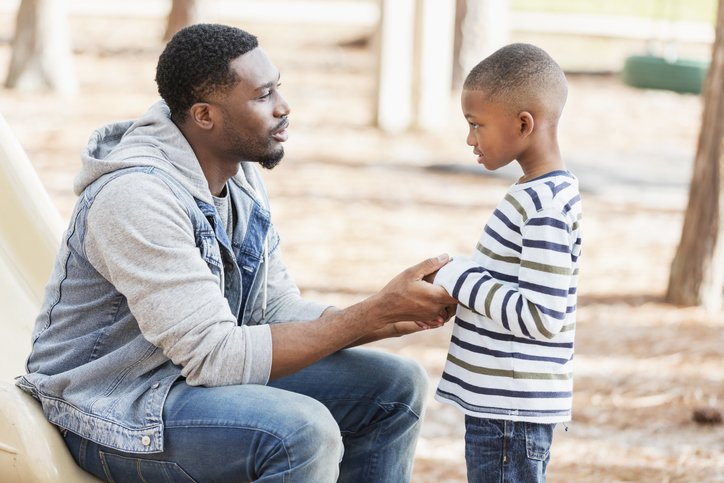Young Children at Funerals: Seven Important Considerations and Helpful Tips
It can be challenging to decide whether or not your child should attend a funeral or memorial service.
We tend to want to protect our youngsters from the sadder events of life, such as having to say a final goodbye to a loved one who has passed away. However, attending a funeral service and receiving support from fellow grieving family members can be just as important to a child’s grieving process as it is to adults.
If you choose to bring your child to the funeral event, here are some valuable pointers to help prepare them for this experience.

Start by asking your child if they want to attend.
It’s important to ensure that your child is ready to attend a funeral. Be prepared to explain what a funeral is, what to expect, and that it is a way to say goodbye to their beloved family member. Once they have a basic understanding of what a funeral is and why people attend, they can make a more informed decision. Death is a hard concept for young children to comprehend so they may be unsure. Invite them to ask questions and be prepared to answer their questions in ways that are age-appropriate.
Prepare them for what’s ahead.
Consider driving by the funeral home, church, or cemetery. You should also describe the basic religious and cultural traditions that may occur. Don’t be afraid to say, “I don’t know” or to offer to find the answers together if you are unsure of the answer to a question. If you find it difficult to talk through, you might reach out to a pastor or funeral director who is familiar with the process and can explain it in a patient and compassionate manner. The funeral home can be a wonderful resource so do not hesitate to reach out with any concerns you may have.
Respect their grief.
Experiencing the death of a parent, sibling, or other significant person can completely alter a child’s sense of stability in the world. Child bereavement can look different than we might expect. According to the American Academy of Child and Adolescent Psychiatry, grieving children may express their grief through anger, sleep issues, decreased appetite, prolonged fear of being alone, and regression. They may also engage in seemingly odd behavior such as imitating the dead person or by expressing the desire to join the person who has died. If these behaviors persist, consider reaching out to a mental health professional who can help them to process their feelings and grief in a productive way.
Validate their feelings.
Just as adults experience a wide range of emotions at funerals, young children are likely to as well. They may cry or they may not cry at all. Let them know that however they respond is OK and that there are no expectations. Also, let them know that others in attendance may express themselves in different ways. Some may be joyful at the prospect of the deceased transitioning to Heaven. Others may express themselves through fits of crying or by going off by themselves. Make it clear to your child that they are not the reason anyone is upset or walks away. Everyone’s grieving process looks different and should be respected.
Include them in the funeral planning.
Depending on your child’s age, involving them in some of the funeral planning or letting them have minor input can help them to feel more in control of the process. For example, they might pick out a hymn they’d like for everyone to sing during the church service or choose which flowers will go on the altar. They will feel included and that they’ve contributed to honoring their loved one in a meaningful way.
Tell them how you feel.
Sharing your feelings with your child can help them feel less alone and better understand grief. It can teach them how to handle their own bereavement, which might feel overwhelming and foreign to them. Invite them to talk about their feelings but do not force them to do so. Let them know that the choice to open up is theirs.
Check in and follow up.
Once the child has attended a wake, funeral, memorial service, or graveside burial, they are likely to have many questions. They may not approach you but you can ask them what they thought, how they felt, or if there was anything that happened during the funeral services that they did not understand. Reassure the child that you care about them and their feelings, and let them know that you are available anytime if they want to discuss their experience.
We hope these pointers are helpful to you. If you need additional guidance, please reach out to our caring professionals. We are always available to discuss your questions and concerns.
About Batchelor Brothers Funeral Services: As a leading African American-owned and operated funeral and cremation organization, Batchelor Brothers Funeral Services has provided a ministry of care to thousands of grieving families. We promise to provide our highest level of distinguished service and respect to families who entrust us to honor their loved ones. In all aspects of the funeral process, we strive to be the absolute best and are honored to help preserve our clients’ legacies for future generations. With two convenient locations serving North and West Philadelphia, it is always our pleasure to be of service. Please visit our website for more information.






Comments